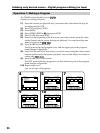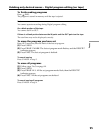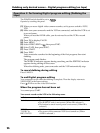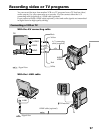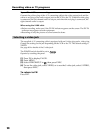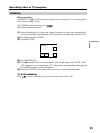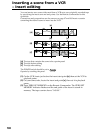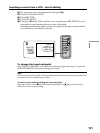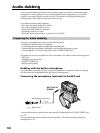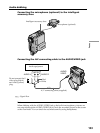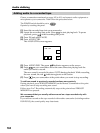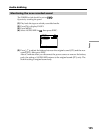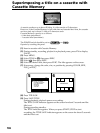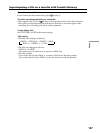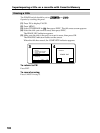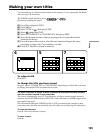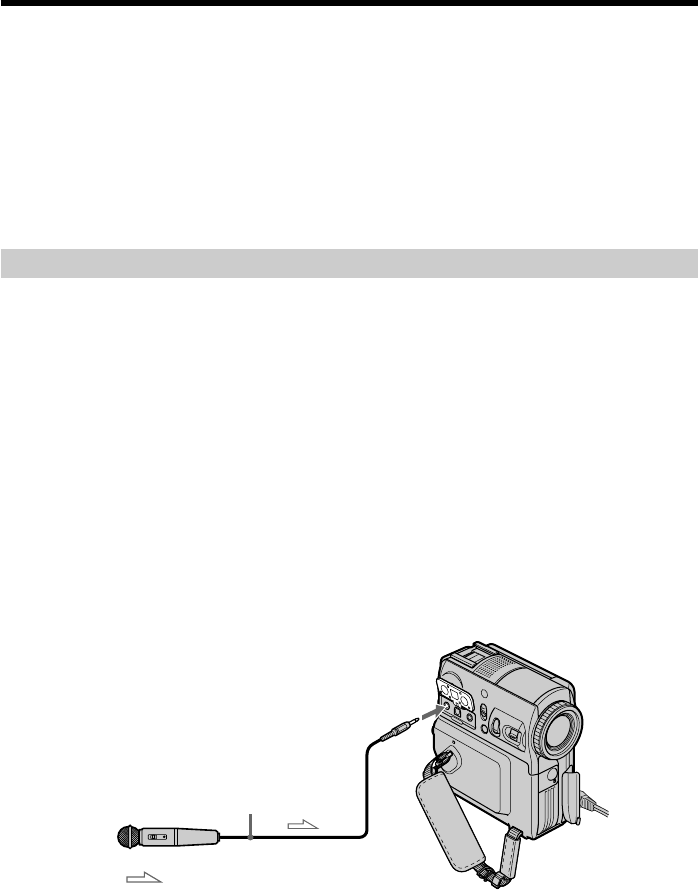
102
You can record additional audio to the original sound on a tape by connecting audio
equipment or a microphone. If you connect suitable audio equipment, you can add
sound to your tape already recorded in the 12-bit mode by specifying starting and
ending points. The original sound will not be erased.
You cannot perform audio dubbing:
– On a tape recorded in the 16-bit mode
– On a tape recorded in the LP mode
– When an i.LINK cable is connected
– On blank portions of a tape
– When the write-protect tab of a cassette is set to SAVE
Preparing for audio dubbing
You can record additional audio in the following ways:
– Dubbing with the built-in microphone
– Connecting the microphone (optional) to the MIC jack
– Connecting the microphone (optional) to the intelligent accessory shoe
– Connecting the A/V connecting cable to the AUDIO/VIDEO jack
The audio input to be recorded will take precedence over others in the following order:
– MIC jack
– Intelligent accessory shoe
– AUDIO/VIDEO jack
– Built-in microphone
Dubbing with the built-in microphone
No connection is necessary. (If no external microphone is connected, audio recording
will be performed automatically by the built-in microphone.)
Connecting the microphone (optional) to the MIC jack
You can check the recorded picture and sound by connecting the AUDIO/VIDEO jack
to a TV.
The recorded sound is not output from the speaker. Check the sound by using the
headphones or TV.
Audio dubbing
MIC (PLUG IN
POWER)
Microphone (optional)
: Signal flow



